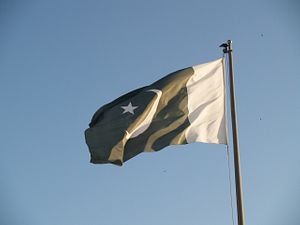U.S. President Donald J. Trump’s new Afghanistan policy, which involves tough actions against Pakistan in case the latter fails to introduce a number of changes to its regional security policy, may have woken Islamabad’s otherwise rather dormant foreign affairs office.
A week ago, Pakistani Foreign Minister Khawaja Asif, announced that Islamabad needed to implement a “paradigm shift” in its foreign policy to tackle growing regional security and economic challenges. Asif, in a whirlwind tour, has visited China, Iran, and Turkey in an effort to shore up support for Islamabad’s stance and role in stabilizing the security situation in Afghanistan after Trump announced his new Afghanistan policy.
Moreover, it appears that Pakistan’s closest ally in the region, China, is also losing patience with the former’s inability and unwillingness to take action against a number of Punjab-based militant groups. It should not come as a surprise that during the recent BRICS summit, China and Russia agreed to name various Pakistan based militant groups as part of their “regional security concern.”
China’s growing pressure may have downgraded Pakistan’s support for insurgent groups, but it hardly means that a true paradigm shift in Pakistan’s security policy is imminent.
The naming of Pakistan-based India-centric militant groups in the recent BRICS declaration doesn’t mean that China is supporting New Delhi’s security concerns. China has generally been supportive of Pakistan’s counter-terrorism policies and has continuously blocked India’s efforts to include a number of Pakistan-based groups under United Nations Security Council terror lists.
Arguably, Beijing disagrees with Pakistan’s general view of its regional security environment, which forces the latter into making some tough and costly policy choices such as maintaining its ties with insurgent groups even at the expense of rising domestic security challenges. Moreover, in the long-run, these groups are likely to become a challenge for Beijing’s broad regional security and economic interests too.
In Pakistan, the use of insurgent groups by the country’s policymakers to fulfill various regional and domestic security and political agendas have put conservative forces in the driver’s seat in terms of shaping the national narrative related to defining identity, the role of Islam, and citizenship.
For instance, over the past two weeks, a number of proscribed organizations in Pakistan have been collecting charity and rallying support to reinforce the jihadist mindset regarding the worsening human rights situation for the Rohingya Muslims in Myanmar. While some of these groups in the past have been a central part of the state’s regional security policy, they have survived and thrived by consolidating their domestic support base. Now even if the state wanted to strictly ban their religious and political campaigns on the ground, it seems a daunting challenge.
Moreover, Pakistan’s regional security policy is being maneuvered by the country’s domestic political landscape where the divergence of organizational interests among various major state institutions remains a key issue. There are two major narratives in Pakistan when it comes to formulating the country’s security policy. The view which has dominated Pakistan’s security policy for almost 70 years is the view of the country’s security establishment.
However, it’s logical to argue that the country’s civilian leadership may be interested in moving away from the securitization of Pakistan’s regional and domestic security policy, which has also come to define the country’s nationalism. But the key question remains: do the civilian elite have the necessary popular support and political will to implement such a change? Are the major state institutions ready to reconcile their organizational differences to form a unified front in order to build consensus over the question of what sort of regional security policy is in the country’s interest?
Unfortunately, that doesn’t appear to be the case. If the country’s political history is any guide, the recent ousting of Pakistan’s former Prime Minister, Nawaz Sharif, took place because of his intent to introduce a more versatile approach to the country’s foreign policy. The current foreign policy of the country is the project of Pakistan’s security elite, who have relentlessly opposed civilian leaders’ plans to bring about any broad change.
In a nutshell, a shift in Pakistan’s security policy has taken place only at the rhetorical level now. The country is still likely to pursue its policy of using insurgent groups to fulfill different domestic and regional security agendas. However, any such policy will only annoy China, Russia, and other regional states.
On Pakistan’s part, from here onward, it’s going to be a struggle between keeping the current policy intact — which can isolate Pakistan internationally — and bringing a major change, but for that the country will have to redefine its national priorities, role of Islam, and long term interests.

































